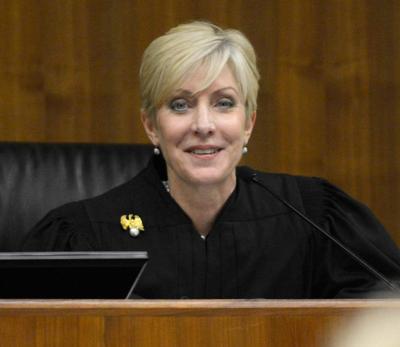Federal judges who struck down the way Louisiana lawmakers once drew legislative, congressional and other district maps upended the state’s political landscape in the 1970s, ’80s and ’90s. Now, the latest round of redistricting litigation could have a similar tectonic effect.
The rulings handed down decades ago came in response to complaints that the legislatively drawn maps violated the “one person, one vote” principle of equal representation, the Equal Protection Clause of the 14th Amendment to the U.S. Constitution and the Voting Rights Act of 1965.
Those cases led to the elimination of multi-member districts, which Louisiana had used to dilute Black voting strength and give sparsely populated rural parishes outsized influence. Eliminating multi-member districts paved the way for Black citizens to gain significant representation in the Legislature, on state and local governing bodies and in the judiciary.
But redistricting remains a fundamentally political process. It’s often said that elections allow voters to choose their leaders — and redistricting allows leaders choose their voters. That only hints at what drives redistricting: politicians’ self-interest.
If the essence of the physician’s oath is “First do no harm,” that of the politician is “First do no harm — to myself.”
That explains why Louisiana lawmakers in 2022 adopted legislative and congressional redistricting plans that mostly maintained the status quo. Even though nearly a third of Louisiana’s voting-age population is Black, they drew five majority-White (read: Republican) congressional districts and only one majority-Black (Democratic) district; and only 11 of 39 state Senate districts and 29 of 105 state House districts are majority-Black.
That led to separate legal challenges. U.S. District Judge Shelly Dick of Baton Rouge struck down both plans, based largely on the same law and jurisprudence.
Some critical facts and factors are different today than what federal judges found generations ago, but the aim and end game are the same: dilution of Black voting strength.
Instead of drawing large, multi-member districts, many majority-White legislatures nowadays concentrate as many Black voters as they can into a few districts as possible — or break up blocs of Black voters by putting them into separate majority-White districts.?
This “packing and cracking” practice, as critics call it, has produced racially and politically polarized?legislative and congressional maps in many states, including Louisiana.?
Dick invalidated Louisiana’s congressional map last year. After appellate courts affirmed her decision, she ordered lawmakers to draw a new plan that included a second majority-Black district by Jan. 30. They reluctantly complied — but only after some political intrigue.
At Gov. Jeff Landry’s behest, legislators created a second majority-Black district that favors state Sen. Cleo Fields and disfavors U.S. Rep. Garret Graves, both of Baton Rouge. Fields, a Black Democrat, is a behind-the-scenes ally of Landry; Graves, a White Republican, is despised by Landry.
Dick must now decide if the new congressional plan meets constitutional standards.
Meanwhile, a group of non-Black Graves supporters challenged the new congressional plan in another federal judicial district — doubtless to keep it out of Dick’s courtroom. This new challenge presents essentially the same arguments that Dick (and appellate judges) have already rejected.
The?Black plaintiffs who filed the earlier, successful case filed a motion to intervene in the new case and to have it transferred to Dick's court, where arguments against the second majority-Black district are likely to fail — again.
In the other case before her, Dick voided the state legislative districting plan on Feb. 8, holding that the legislative maps don’t give Black voters a fair opportunity to elect candidates of their choice. She ordered new legislative maps to be redrawn, but she did not impose a specific deadline.
Five days later, on Feb. 13, the plaintiffs in that case asked Dick to order a new round of legislative elections in the fall. That would require lawmakers to fast-track the remapping process, which the Legislature’s GOP majority clearly doesn’t want to do because it could threaten Republicans’ super-majority in both legislative chambers.
Even if Dick orders new legislative elections, appeals will likely stack the odds against holding those elections in November.
But it’s not beyond the realm of possibility that, if appellate judges affirm her initial ruling, Dick could order new legislative elections in the autumn of 2025.
That, along with a second majority-Black congressional district, would upend Louisiana’s political landscape once more.

